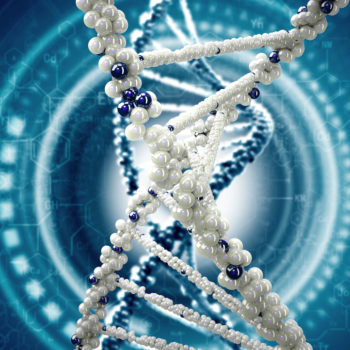The Alzheimer’s gene ApoE4 appears to affect the brain and cognition function in childhood, which is much earlier than anyone suspected, according to new research published in the journal Neurobiology of Aging.
ApoE4 Alzheimer’s Gene and Brain Function
Researchers have known for some time that people with the ApoE4 gene show noticeable changes in cognitive ability (thinking and memory) as they approach the age of 50.
But new research from the University of California Riverside suggests that people with the ApoE4 Alzheimer’s gene show cognitive deficits as early as childhood. The study found that ApoE4 carriers scored lower on IQ tests in childhood and adolescence, with reasoning skills being the most impacted. The effect was more pronounced in girls than in boys.
Related: Can You Change the Course of Your Genetic Risk for Alzheimer’s?
The ApoE4 gene variant occurs in roughly 15 percent of the population. People with this gene are three times more likely to develop Alzheimer’s disease than people without the gene. For those with two ApoE4 genes, the risk is even higher. However, not everyone with the ApoE4 gene will develop Alzheimer’s disease, and not everyone with Alzheimer’s disease carries the ApoE4 gene.
Children With Ap0e4 Gene Score Lower on IQ Tests
The study, conducted by Chandra Reynolds, PhD, a professor of psychology at UC Riverside, and her colleagues, looked at data from 1,321 participants between the ages of 6 and 18, half boys, half girls. The data included genotyping and three IQ assessments between childhood and adolescence.
They found that IQ scores were lower by 1.91 points for each ApoE4 gene a person carried. Boys scored .33 points lower for each ApoE4 gene, while girls scored almost 3 points lower per gene.
According to Reynolds, this can result in reduced cognitive reserve as the person ages, with the disadvantage becoming progressively amplified. Cognitive reserve is the brain’s ability to problem-solve and improvise in the face of an obstacle. It’s developed by a lifetime of education and intellectual curiosity, and protects the brain against degeneration and disease.
Related: Until There’s a Treatment for Alzheimer’s, Follow This Prevention Advice
“Our results suggest that cognitive differences associated with ApoE may emerge early and become magnified later in the life course, and if so, childhood represents a key period of intervention to invest in and boost reserves,” said Reynolds.
Read Next: People With High Genetic Risk for Alzheimer’s Can Lower Their Risk by 32%





Wow, I didn’t know that the APOE4 gene could actually affect people early on from childhood. I think I’ll have my child tested for it to see if she’ll be at risk for Alzheimer’s when she grows older. It’s been known to my family that we have a genetic predisposition for it, so this may help me know if my daughter is at risk for it as well.